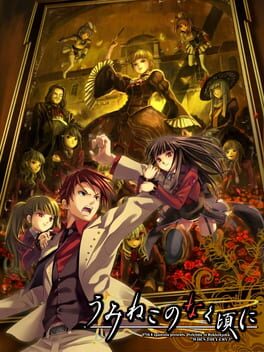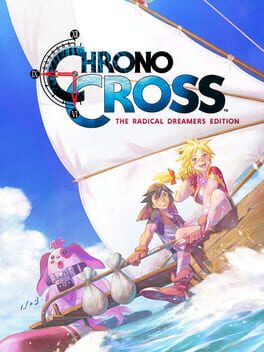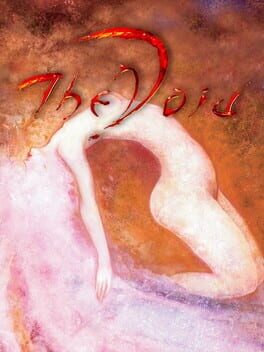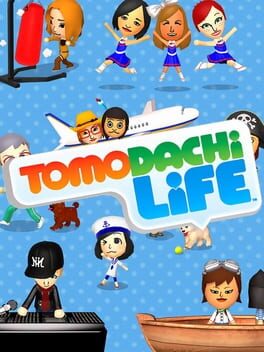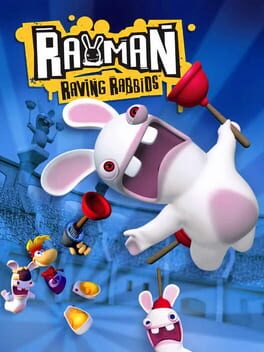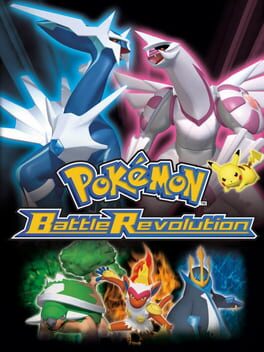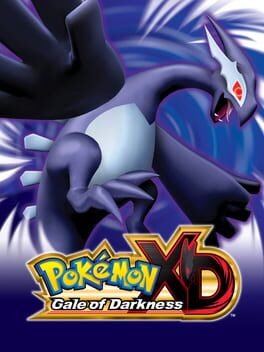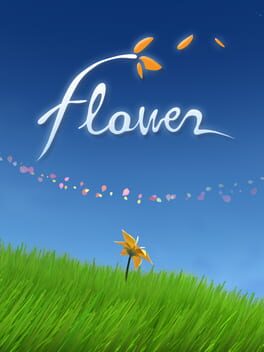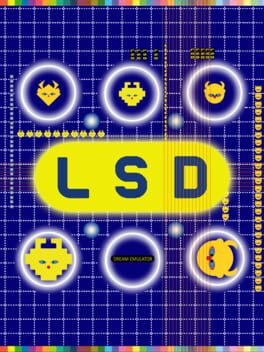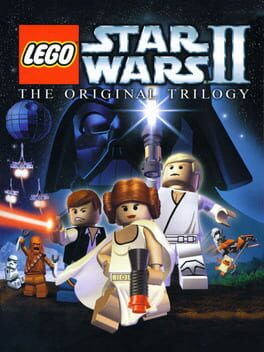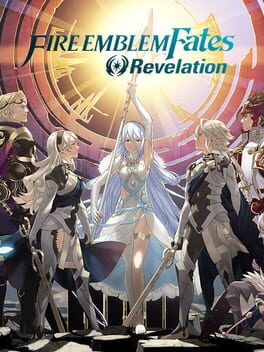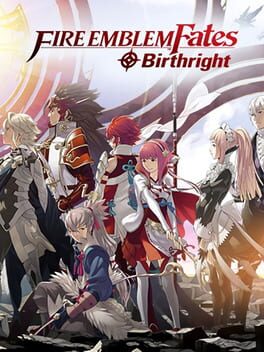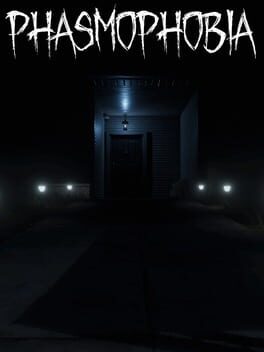penthepoet
Without love, it cannot be seen.
Such are the arc words of Umineko: When They Cry.
Where do I begin with this VN? Where do I begin?
For the most part, I went in blind. I cannot recommend this approach enough — this story is extremely precise about how it structures itself and the hints it gives, and being able to experience that without any sort of hinderance based on preconceived notions you have of this story helps.
This story is a time commitment. I'm not joking. You need to buckle in for this one. I'm still not completely convinced that the way this VN is paced works for it in every sense — I particularly noticed the beginning, one or two middle parts and some of the ending chapter dragged a bit. But for the most part, it does a good job at taking its time to set up the Chekov's Guns it does, which go off in spectacular fashion all throughout the story.
The soundtrack is, bar none, one of the best video game soundtracks I've ever heard. I would even go so far as to say that it's as pivotal to the experience of Umineko as the text itself is — the way it's able to accentuate these characters' highs and lows, craft a compelling atmosphere with nothing but sound, and even go so far as to Pavlov you into certain emotions just when they need to hit is masterful. (Special shoutout to worldend [babypiano] in this regard, which still makes me tear up even just hearing it out of context.) There's also just some straight-up bangers on this soundtrack.
If you like organ and electronic music, Umineko will feed you a ten-course Michelin-star meal of some of the most dynamic and hype-overdosing music you will ever listen to with your earholes. Patchwork Chimera in particular stands out as my ultimate favorite — that track goes HARD, no way around it.
Returning to the characters and story.
I have heard Umineko referred to as "the House of Leaves of VNs." I'd say this is an apt comparison, except I have an even better one: Umineko is like if Agatha Christie's stories, Fate/stay night and IASIP got ground up into a blender. The story is multilayered in ways I'm still pondering on after the fact. A shift in interpretation on even just one facet of Umineko can change how you see nearly all of the VN as a whole, that's how interwoven we're talking here. While the pacing has its low points, it does a real service for establishing these characters.
You will love the Ushiromiya Family.
You will hate the Ushiromiya Family.
Sometimes, you will even love and hate the Ushiromiya Family in the same breath.
This VN made me legitimately write an entire essay regarding my least favorite member of the Ushiromiya Family and how excellently she's written. You see the nuances, the contradictions, the inner struggles of almost everyone in this cast, and the story thrives for it. Battler himself is a tremendously written character over the course of Umineko — he starts off rough with some really iffy jokes, but I swear to god, he gets better and he comes back with a vengeance as one of my favorite VN protags of all time. This is no joke one of Daisuke Ono's best roles, you can FEEL the weight of Battler's emotions in every single sentence uttered.
And Beatrice. Holy shit, Beatrice.
Sayaka Ohara brings a gravitas and brutality to Beatrice that is as volatile as it is charming, cackling, crooning and snarling all the while like a beast come unchained for all the world to see. Yet, even in moments of sympathy, she's able to reflect the many complexities and tendernesses present in our ever-shifting understanding of Beatrice throughout the visual novel in a way that is truly career-making. She should have gotten awards for this role. Her dynamic with Battler stands as one of the best hero-antagonist dynamics I've seen in a work of fiction like this. No joke.
I also extremely appreciated the way that the visual novel is open to many ways of interpretation, even down to the ending itself — as somebody who did not appreciate certain explanations given for certain characters and plot complexities, it made me happy to know that Umineko allowed room for my experience just as much as it allowed room for those who wanted to understand every mystery within it.
That being said, as much praise as I have to heap upon this VN, there were certainly aspects that brought me pause. I'm not quite sure certain sensitive subjects are handled with the tact they particularly deserve, particularly in regards to abuse. Seeing with love is a huge part of Umineko — even those who have done horrible things, you are invited to see with sympathy. While this works for a wide variety of characters, there was a particular case in which I felt inviting a certain character to "be seen with love" formed a false equivalency that directly went against the way abuse from other characters has been interrogated and condemned throughout the VN, and left an extremely sour taste in my mouth that still impacts how I see that aspect of Umineko.
In short, the pacing drags it down in places, the early jokes from Battler felt in poor taste to me, and I'm really not satisfied with the explanation we're given in regards to the plot as a whole if all the "fantasy" elements are stripped away.
But we are talking about a visual novel that made me cry over ten times, sometimes in a row. Despite Umineko's slight flaws, I didn't want to leave Rokkenjima, I didn't want to leave the Ushiromiya Family in all their fucked-up, mentally ill fail-family glory behind, I didn't want to leave Beatrice and Battler behind, as I'd grown attached to all of it before I even knew it.
Umineko had, before I knew it, given me the joy to look upon these things I once found so unfamiliar, and see it all with love.
I think I'll be studying this visual novel for months. It nails down so much in such intricate ways, tackling narrative twists, character development and more in ways I've always wanted to capture in my own writing.
And when I listen to the soundtrack...
Well, I'll always think fondly of my time on Rokkenjima, when the seagulls cried.
Such are the arc words of Umineko: When They Cry.
Where do I begin with this VN? Where do I begin?
For the most part, I went in blind. I cannot recommend this approach enough — this story is extremely precise about how it structures itself and the hints it gives, and being able to experience that without any sort of hinderance based on preconceived notions you have of this story helps.
This story is a time commitment. I'm not joking. You need to buckle in for this one. I'm still not completely convinced that the way this VN is paced works for it in every sense — I particularly noticed the beginning, one or two middle parts and some of the ending chapter dragged a bit. But for the most part, it does a good job at taking its time to set up the Chekov's Guns it does, which go off in spectacular fashion all throughout the story.
The soundtrack is, bar none, one of the best video game soundtracks I've ever heard. I would even go so far as to say that it's as pivotal to the experience of Umineko as the text itself is — the way it's able to accentuate these characters' highs and lows, craft a compelling atmosphere with nothing but sound, and even go so far as to Pavlov you into certain emotions just when they need to hit is masterful. (Special shoutout to worldend [babypiano] in this regard, which still makes me tear up even just hearing it out of context.) There's also just some straight-up bangers on this soundtrack.
If you like organ and electronic music, Umineko will feed you a ten-course Michelin-star meal of some of the most dynamic and hype-overdosing music you will ever listen to with your earholes. Patchwork Chimera in particular stands out as my ultimate favorite — that track goes HARD, no way around it.
Returning to the characters and story.
I have heard Umineko referred to as "the House of Leaves of VNs." I'd say this is an apt comparison, except I have an even better one: Umineko is like if Agatha Christie's stories, Fate/stay night and IASIP got ground up into a blender. The story is multilayered in ways I'm still pondering on after the fact. A shift in interpretation on even just one facet of Umineko can change how you see nearly all of the VN as a whole, that's how interwoven we're talking here. While the pacing has its low points, it does a real service for establishing these characters.
You will love the Ushiromiya Family.
You will hate the Ushiromiya Family.
Sometimes, you will even love and hate the Ushiromiya Family in the same breath.
This VN made me legitimately write an entire essay regarding my least favorite member of the Ushiromiya Family and how excellently she's written. You see the nuances, the contradictions, the inner struggles of almost everyone in this cast, and the story thrives for it. Battler himself is a tremendously written character over the course of Umineko — he starts off rough with some really iffy jokes, but I swear to god, he gets better and he comes back with a vengeance as one of my favorite VN protags of all time. This is no joke one of Daisuke Ono's best roles, you can FEEL the weight of Battler's emotions in every single sentence uttered.
And Beatrice. Holy shit, Beatrice.
Sayaka Ohara brings a gravitas and brutality to Beatrice that is as volatile as it is charming, cackling, crooning and snarling all the while like a beast come unchained for all the world to see. Yet, even in moments of sympathy, she's able to reflect the many complexities and tendernesses present in our ever-shifting understanding of Beatrice throughout the visual novel in a way that is truly career-making. She should have gotten awards for this role. Her dynamic with Battler stands as one of the best hero-antagonist dynamics I've seen in a work of fiction like this. No joke.
I also extremely appreciated the way that the visual novel is open to many ways of interpretation, even down to the ending itself — as somebody who did not appreciate certain explanations given for certain characters and plot complexities, it made me happy to know that Umineko allowed room for my experience just as much as it allowed room for those who wanted to understand every mystery within it.
That being said, as much praise as I have to heap upon this VN, there were certainly aspects that brought me pause. I'm not quite sure certain sensitive subjects are handled with the tact they particularly deserve, particularly in regards to abuse. Seeing with love is a huge part of Umineko — even those who have done horrible things, you are invited to see with sympathy. While this works for a wide variety of characters, there was a particular case in which I felt inviting a certain character to "be seen with love" formed a false equivalency that directly went against the way abuse from other characters has been interrogated and condemned throughout the VN, and left an extremely sour taste in my mouth that still impacts how I see that aspect of Umineko.
In short, the pacing drags it down in places, the early jokes from Battler felt in poor taste to me, and I'm really not satisfied with the explanation we're given in regards to the plot as a whole if all the "fantasy" elements are stripped away.
But we are talking about a visual novel that made me cry over ten times, sometimes in a row. Despite Umineko's slight flaws, I didn't want to leave Rokkenjima, I didn't want to leave the Ushiromiya Family in all their fucked-up, mentally ill fail-family glory behind, I didn't want to leave Beatrice and Battler behind, as I'd grown attached to all of it before I even knew it.
Umineko had, before I knew it, given me the joy to look upon these things I once found so unfamiliar, and see it all with love.
I think I'll be studying this visual novel for months. It nails down so much in such intricate ways, tackling narrative twists, character development and more in ways I've always wanted to capture in my own writing.
And when I listen to the soundtrack...
Well, I'll always think fondly of my time on Rokkenjima, when the seagulls cried.
2012
This review contains spoilers
I have a complicated history with Persona 4. On one hand, it singlehandedly changed the course of my life and set me down a path in my own life that I do not think I regret in the least. On the other hand, I have had to contend quite a bit with my nostalgia goggles for this game fading a little and with really beginning to understand that this game isn't the masterpiece I thought it was. Is it for you? That's up to you to decide.
Persona 4 Golden's biggest strength is its atmosphere - the backwater town of Yaso-Inaba, for how little there is to do in it, captures a very particular sort of feeling that can't really be done justice. It's the sort of hazy joy that comes with thinking of good times in your high school years, the lazy, halcyon "summer years" of yours that slowly begin to taper off into the realization of what you have to do and the responsibilities one has to take on as an adult.
My favorite part of this game really does have to be the Dojima family (Adachi included). Ryotaro and Nanako Dojima's Social Links hit more than a little harder than I expected it to as a AFAB person with a father mainly absent for work reasons. Tohru Adachi's Social Link is one of the best additions Golden makes, giving fun amounts of foreshadowing and context to a character who historically didn't receive much in the original Persona 4. He is, as always, a fantastic fucking villain with a lot of complexity - even more so, the older you get and the more you experience the world. The Accomplice Ending still remains one of my favorite Bad Endings in any RPG to date. Everything surrounding these three remains as good as it ever was in my mind's eye, even despite everything that's happened surrounding them in my life.
However...
that doesn't fix the fact that this game has a lot, and I do mean a lot, of issues. The rest of the Social Links (aside from those like Marie) aren't really too great. I can see what they were going for with the main party, but it was infamously bungled by the way the developers just did not think about how they were deploying their themes in their plot. The queerphobia in this game just ages worse and worse with every year, the gameplay is clunky and doesn't really grow on me, some of the impacts don't hit as hard as they used to.
But then again, why would they? I'm a very different person than the weird teenager who picked up Persona 4 Golden in 2019-2020. This was a game for that me, who needed it the most. I'm 21 now, I have an apartment, I'm entering my senior year in college.
The Persona 4 Golden in my head was never the Persona 4 Golden that actually existed. It lies, instead, in the past - in my past self's hands, a past forever stuck in that hazy summer year. It lies, somewhat still, with me in the quiet present, in an autumn year of my life that paradoxically seems both colder and warmer.
Persona 4 Golden's biggest strength is its atmosphere - the backwater town of Yaso-Inaba, for how little there is to do in it, captures a very particular sort of feeling that can't really be done justice. It's the sort of hazy joy that comes with thinking of good times in your high school years, the lazy, halcyon "summer years" of yours that slowly begin to taper off into the realization of what you have to do and the responsibilities one has to take on as an adult.
My favorite part of this game really does have to be the Dojima family (Adachi included). Ryotaro and Nanako Dojima's Social Links hit more than a little harder than I expected it to as a AFAB person with a father mainly absent for work reasons. Tohru Adachi's Social Link is one of the best additions Golden makes, giving fun amounts of foreshadowing and context to a character who historically didn't receive much in the original Persona 4. He is, as always, a fantastic fucking villain with a lot of complexity - even more so, the older you get and the more you experience the world. The Accomplice Ending still remains one of my favorite Bad Endings in any RPG to date. Everything surrounding these three remains as good as it ever was in my mind's eye, even despite everything that's happened surrounding them in my life.
However...
that doesn't fix the fact that this game has a lot, and I do mean a lot, of issues. The rest of the Social Links (aside from those like Marie) aren't really too great. I can see what they were going for with the main party, but it was infamously bungled by the way the developers just did not think about how they were deploying their themes in their plot. The queerphobia in this game just ages worse and worse with every year, the gameplay is clunky and doesn't really grow on me, some of the impacts don't hit as hard as they used to.
But then again, why would they? I'm a very different person than the weird teenager who picked up Persona 4 Golden in 2019-2020. This was a game for that me, who needed it the most. I'm 21 now, I have an apartment, I'm entering my senior year in college.
The Persona 4 Golden in my head was never the Persona 4 Golden that actually existed. It lies, instead, in the past - in my past self's hands, a past forever stuck in that hazy summer year. It lies, somewhat still, with me in the quiet present, in an autumn year of my life that paradoxically seems both colder and warmer.
"We loved so many, and yet hated so much...
We hurt others and were hurt ourselves....
Yet for a certainty back then, we ran like the wind...
While our laughter echoed under cerulean skies."
Chrono Cross is.
Chrono Cross is a lot of things.
It is a view of an aquatic world teeming with overwhelming life that makes the touches of death within it hurt that much harder.
It is a window into all the little lives, all the tiny miracles, that make up the cast and crew of Chrono Cross. From Serge's and Kid's story, to Nikki's journey, to even the story of a young poet in Serge's village, I witnessed all sorts of stories from all walks of life that hit with immense and profound poignancy.
It is a masterclass in sincerity, balancing equal parts fun and melancholy in a way that did not in the least feel unearned. When this story hits you, it HITS you. This game had me bawling in a good way more times than I could count.
There are AAA games out today that could not even come close to matching the quality of character writing, worldbuilding and plot writing that this game has.
The gameplay's quality of life additions made it really fun to play through, as well. I can only think of one or two times where I wasn't having fun, and even then I managed to get out of them relatively quickly.
I highly recommend playing with the old graphics, using a ReShade CRT filter. It really does make the game's visuals shine - this game is, without a doubt, gorgeous, and there were several moments in it that just took my breath away with that little visual touch. It's one of the few things I'm most grateful I took the time to do in setting up my game.
There is nothing more I can say about this game that would do it justice other than to entreat you to play it yourself. Perhaps, under cerulean skies, you too will see the same beauty that this game had to offer for me.
We hurt others and were hurt ourselves....
Yet for a certainty back then, we ran like the wind...
While our laughter echoed under cerulean skies."
Chrono Cross is.
Chrono Cross is a lot of things.
It is a view of an aquatic world teeming with overwhelming life that makes the touches of death within it hurt that much harder.
It is a window into all the little lives, all the tiny miracles, that make up the cast and crew of Chrono Cross. From Serge's and Kid's story, to Nikki's journey, to even the story of a young poet in Serge's village, I witnessed all sorts of stories from all walks of life that hit with immense and profound poignancy.
It is a masterclass in sincerity, balancing equal parts fun and melancholy in a way that did not in the least feel unearned. When this story hits you, it HITS you. This game had me bawling in a good way more times than I could count.
There are AAA games out today that could not even come close to matching the quality of character writing, worldbuilding and plot writing that this game has.
The gameplay's quality of life additions made it really fun to play through, as well. I can only think of one or two times where I wasn't having fun, and even then I managed to get out of them relatively quickly.
I highly recommend playing with the old graphics, using a ReShade CRT filter. It really does make the game's visuals shine - this game is, without a doubt, gorgeous, and there were several moments in it that just took my breath away with that little visual touch. It's one of the few things I'm most grateful I took the time to do in setting up my game.
There is nothing more I can say about this game that would do it justice other than to entreat you to play it yourself. Perhaps, under cerulean skies, you too will see the same beauty that this game had to offer for me.
2008
2009
2013
2009
1998
2020
